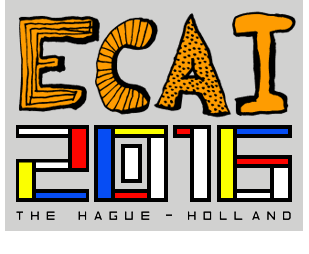What can FCA do for Artificial Intelligence?

General information
Previous editions of the FCA4AI Workshop showed that many researchers working in Artificial Intelligence are indeed interested by a powerful method for classification and mining such as Formal Concept Analysis (see the proceedings of the previous workshop editions).
We are organizing a new edition of the workshop in the Hague at the ECAI 2016 Conference.
Formal Concept Analysis (FCA) is a mathematically well-founded theory aimed at data analysis and classification. FCA allows one to build a concept lattice and a system of dependencies (implications) which can be used for many AI needs, e.g. knowledge processing involving learning, knowledge discovery, knowledge representation and reasoning, ontology engineering, and as well as information retrieval and text processing. Thus, there exist many "natural links" between FCA and AI.
Recent years have been witnessing increased scientific activity around FCA, in particular a strand of work emerged that is aimed at extending the possibilities of FCA w.r.t. knowledge processing, such as work on pattern structures and relational context analysis. These extensions are aimed at allowing FCA to deal with more complex than just binary data, both from the data analysis and knowledge discovery point of view and from the knowledge representation point of view, including, e.g., ontology engineering. All these works extend the capabilities of FCA and offer new possibilities for AI activities in the framework of FCA.
Accordingly, in this workshop, we will be interested in two main issues:
- How can FCA support AI activities such as knowledge processing (knowledge discovery, knowledge representation and reasoning), learning (clustering, pattern and data mining), natural language processing, information retrieval.
- How can FCA be extended in order to help AI researchers to solve new and complex problems in their domain.
Topics of interest
Workshop topics include but are not limited to:
- Concept lattices and related structures: description logics, pattern structures, relational structures.
- Knowledge discovery and data mining with FCA: association rules, itemsets and data dependencies, attribute implications, data pre-processing, redundancy and dimensionality reduction, classification and clustering.
- Knowledge engineering and ontology engineering: knowledge representation and reasoning.
- Scalable algorithms for concept lattices and artificial intelligence "in the large" (distributed aspects, big data).
- Applications of concept lattices: semantic web, information retrieval, visualization and navigation, pattern recognition.
The workshop will include time for audience discussion for having a better understanding of the issues, challenges, and ideas being presented.
Submission details
The workshop welcomes submissions in pdf format in Springer's Lecture Notes in Computer Science style. Submissions can be:
- technical papers not exceeding 8 pages,
- system descriptions or position papers on work in progress not exceeding 4 pages
Submissions are done via EasyChair.
All papers will be judged based on their technical merits, originality, relevance to areas of interest, and presentation clarity. Papers should describe original work that has not been published before, is not under review elsewhere, and will not be submitted elsewhere during FCA4AI 2016's review period.
Accepted papers will be published in CEUR Workshop Proceedings (online) and FCA4AI Homepage (online).
Workshop chairs
- Sergei O. Kuznetsov, National Research University Higher School of Economics (Russia)
- Amedeo Napoli, LORIA-INRIA, Vandoeuvre les Nancy, France
- Sebastian Rudolph, Technische Universitaet Dresden, Germany